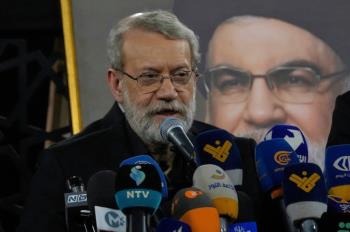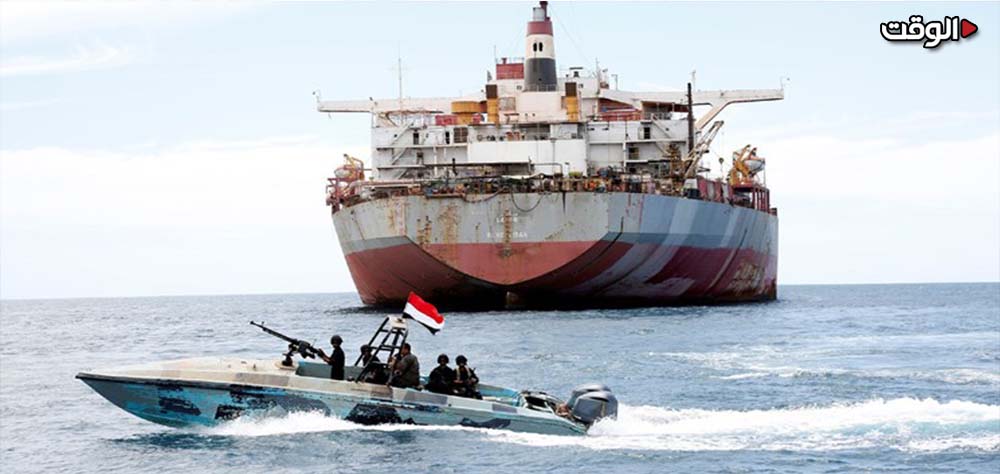The offensives carried out by the United States and its allies in Yemen, backing the Zionist regime, are poised to kindle the fires of war in the Red Sea, disrupting stability and security. The consequences will predominantly impact the Western-Arab front, which overlooked the warnings issued by the Axis of Resistance.
ALWAGHT- After weeks of hesitation by the U.S. government to launch a military attack against the positions of Ansarullah, the White House and its allies finally initiated airstrikes on some areas in Yemen early Friday morning.
Regarding this matter, following the publication of images depicting these airstrikes in the media, a U.S. official informed CNN that the U.S. military executed assaults on various targets within regions controlled by Ansarullah. The operations were conducted utilizing fighter jets and Tomahawk missiles. The American official mentioned that the strikes against Yemen focused on radar sites, drone platforms, missiles, and coastal surveillance and patrol locations. Speaking to Al Jazeera, the official stated, 'The assaults on Yemeni positions have concluded, yet we maintain the prerogative to retaliate if threats persist.'
Joe Biden, the President of the United States, declared on this matter: "Upon my orders, the U.S. military, along with Britain and with the support of Australia, Bahrain, Canada, and the Netherlands, successfully carried out attacks against multiple targets in Yemen. These targeted strikes send a clear message that the United States and its allies will not tolerate attacks on our personnel or allow belligerent parties to jeopardize the freedom of navigation in one of the world's most crucial trade routes."
Rishi Sunak, the Prime Minister of the United Kingdom, also stated in this regard: "We have taken limited, necessary, and proportionate actions to defend ourselves. The objective of our actions is to weaken the military capabilities of the Yemenis and safeguard global shipping."
Reuters reported on this matter, stating that the attacks by the United States and the United Kingdom in Yemen have been conducted using airplanes, ships, and submarines. According to Pentagon officials, 16 military centers have been targeted in these attacks, and some sources claim that around a hundred missiles have been fired by the U.S. and the UK. The attacks by the U.S. and the UK were mainly focused on the Al Hudaydah governorate, overlooking the Bab al-Mandab strait, and this area has been targeted twice by coalition fighter jets and drones.
Soon after the remarks made by American and British authorities, Yahya Saree, the spokesperson for Yemen's armed forces, declared that the American-British adversary, backing the crimes of the Zionist regime in Gaza, directed 73 aerial attacks at Sanaa and the provinces of Al Hudaydah, Taiz, Hajjah, and Saada. These assaults resulted in the martyrdom of 5 individuals and injuries to 6 others.
Despite the efforts of the U.S. naval coalition to eliminate Ansarullah's missile and drone storage facilities through these strikes, it appears that the Yemenis have once again outsmarted the Western forces. The Wall Street Journal, referring to a U.S. military official and a source close to Ansarullah, conveyed that Ansarullah forces had moved and hidden some of their weapons and equipment before the assaults by the U.S. and its allies.
U.S. defense authorities stated that the goal of the attack strategy is to limit Ansarullah's attacks in the Red Sea without escalating tensions in an already turbulent region. Nevertheless, these military actions have transformed the Red Sea into a volatile situation.
The assaults carried out by the United States and its allies in Yemen coincide with the prolonged deployment of U.S. naval vessels in the Red Sea, ostensibly in support of the Zionist regime. Additionally, there have been efforts to establish an international naval coalition. After Ansarullah conducted missile operations against Zionist ships in late October, the U.S. intervened, asserting to have intercepted multiple missiles and drones launched by Yemen, possibly aimed at targets in Israel, marking the Pentagon's initial operation on October 19th.
On December 18, the U.S. Department of Defense claimed to have tracked and destroyed some of Ansarullah's drones. However, White House officials were not satisfied with these actions and took a new initiative on December 18. They formed a naval coalition called the "Guardians of Welfare" with the assistance of some allies to counter Ansarullah's operations in the Red Sea and the Gulf of Aden.
The direct clash between Washington and Sanaa commenced on December 31 when American drones, supporting the commercial ship "Maersk" en route to the occupied territories, attacked three boats owned by Ansarullah with their 10 crew members. Ansarullah promptly responded, launching a missile towards the U.S. ship in the Red Sea and issuing a warning of reprisal for their martyrs. On Thursday, the U.S. Department of Defense additionally asserted to have monitored 24 Yemeni drones in the Red Sea.
Tensions in the Red Sea are escalating
Despite assertions by Washington and its allies that these attacks will compel Ansarullah to withdraw from operations in the Red Sea, the opposite outcome has unfolded. As suggested by the statements from leaders in Sanaa, the conflict's scope against the interests of the West and Zionists is broadening.
Regarding this matter, on Friday, Ali al-Qahoum, a senior member of Ansarullah, stated in the initial reaction to the bombing of Yemen: "An intense conflict is unfolding in the Red Sea, with a focus on the military bases of the United States and the United Kingdom. More significant actions against the aggressors are imminent. Yemen will persist in targeting Israeli ships in the Red Sea unless the aggression against Gaza halts, and it is crucial for the United States and the United Kingdom to comprehend this."
Mohammad Abdul-Salam, the spokesperson for Ansarullah, issued a cautionary statement as well: "Our targeting focuses on Israeli vessels or those heading towards the occupied ports of Palestine, and these assaults will persist. The U.S. aggression does not discourage our armed forces and the people; rather, it fortifies and steadies us as we have fulfilled our moral obligation to the Palestinian people."
Mohammad al-Bukhaiti, a prominent member of Ansarullah, underscored that the United States and the United Kingdom erred in the Yemeni conflict, neglecting to draw lessons from their past encounters. He expressed, "In the near future, the U.S. and the UK will come to recognize that their direct aggression against Yemen stands as their most significant folly in history."
Abdullah bin Amer, the Deputy Director of the Department of Moral Guidance at the National Salvation Government (NSG), stressed, "Certain regions under our control have faced swift attacks, and we will promptly retaliate. We possess substantial capabilities that allow us to lawfully defend ourselves. Multiple military bases near Sanaa and Al Hudaydah have been the focus of attacks. Should the United States and the United Kingdom intensify their assaults, we will target their bases in the region."
The leaders in Sanaa also warned Saudi Arabia, the United Arab Emirates, and Qatar that opening their airspace to American and British aircraft would be considered an official declaration of war against Yemen. Earlier, Sanaa had cautioned that the interests of any member of the American coalition are legitimate targets of Ansarullah.
Ansarullah has issued repeated warnings that any actions taken by the coalition led by Washington will be met with a harsh retaliation. In solidarity with the people of Gaza, Ansarullah intends to expand the range of its operations. Consequently, it is anticipated that Ansarullah's activities, initially focused on Zionist ships, will now encompass the interests of the United States and the nations involved in the assault on Yemen. This shift is likely to heighten tensions in the Bab al-Mandab strait and the Red Sea in the days and weeks ahead.
In terms of geography, the Bab al-Mandab Strait is recognized as a critical global chokepoint. It functions as a vital connection between the Red Sea, the Suez Canal, and the Mediterranean. Additionally, the Bab el-Mandeb links Southwest Asia to East Africa and Europe. The Red Sea stands as one of the foremost international trade routes, facilitating around 10% of global trade and 30% of global maritime container transportation.
During the October 1973 Arab-Israeli War, when Arab nations halted oil exports to the West for a two-month period, the Zionist regime and its Western allies suffered losses amounting to tens of billions. The expulsion of thousands of workers dealt a severe blow to the Israeli-Western front. Consequently, any escalation in engagements in the Red Sea, along with a temporary blockade of the Bab al-Mandab strait by Ansarullah, could lead to substantial losses for Western powers and Zionists once more.



























